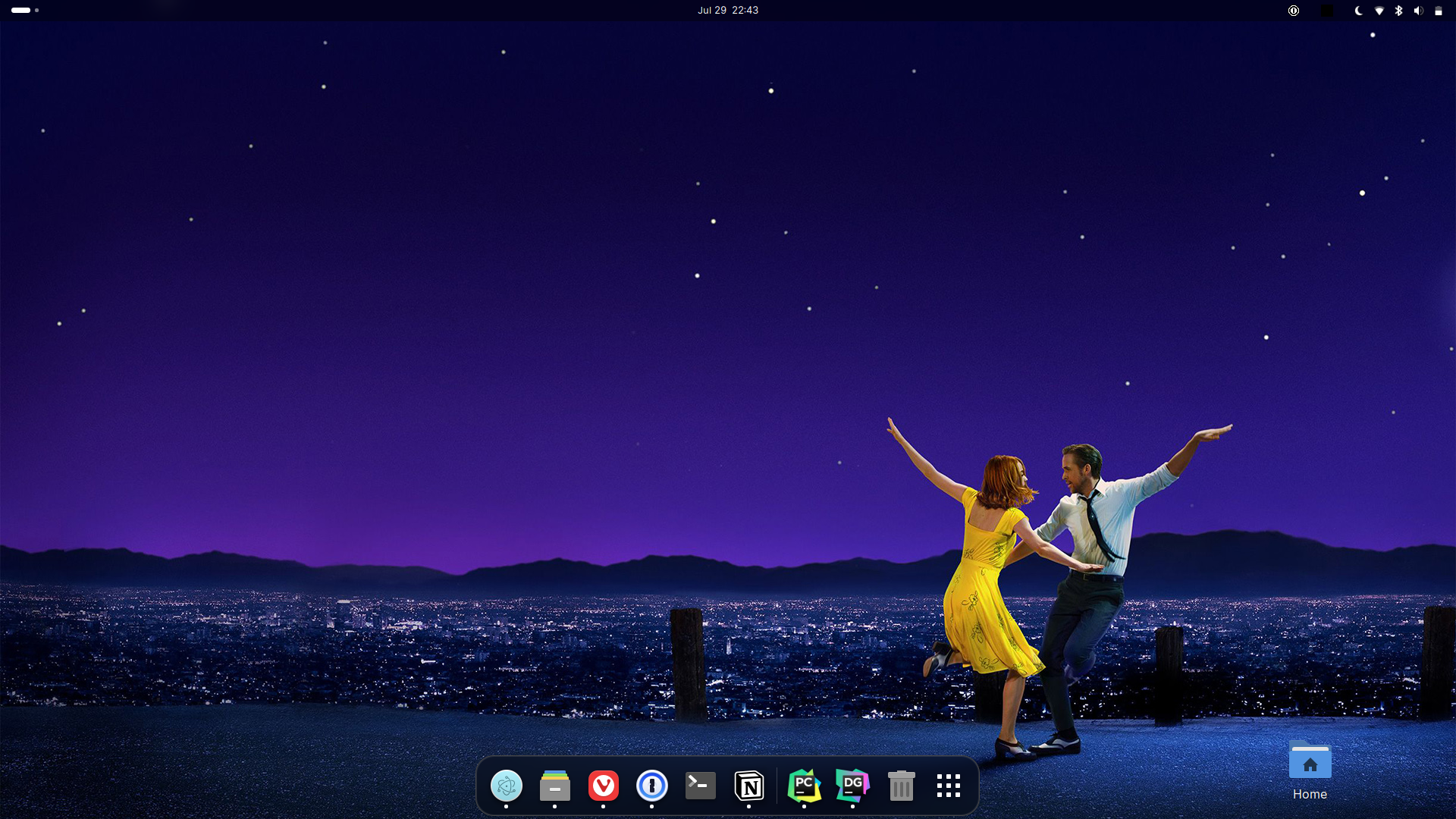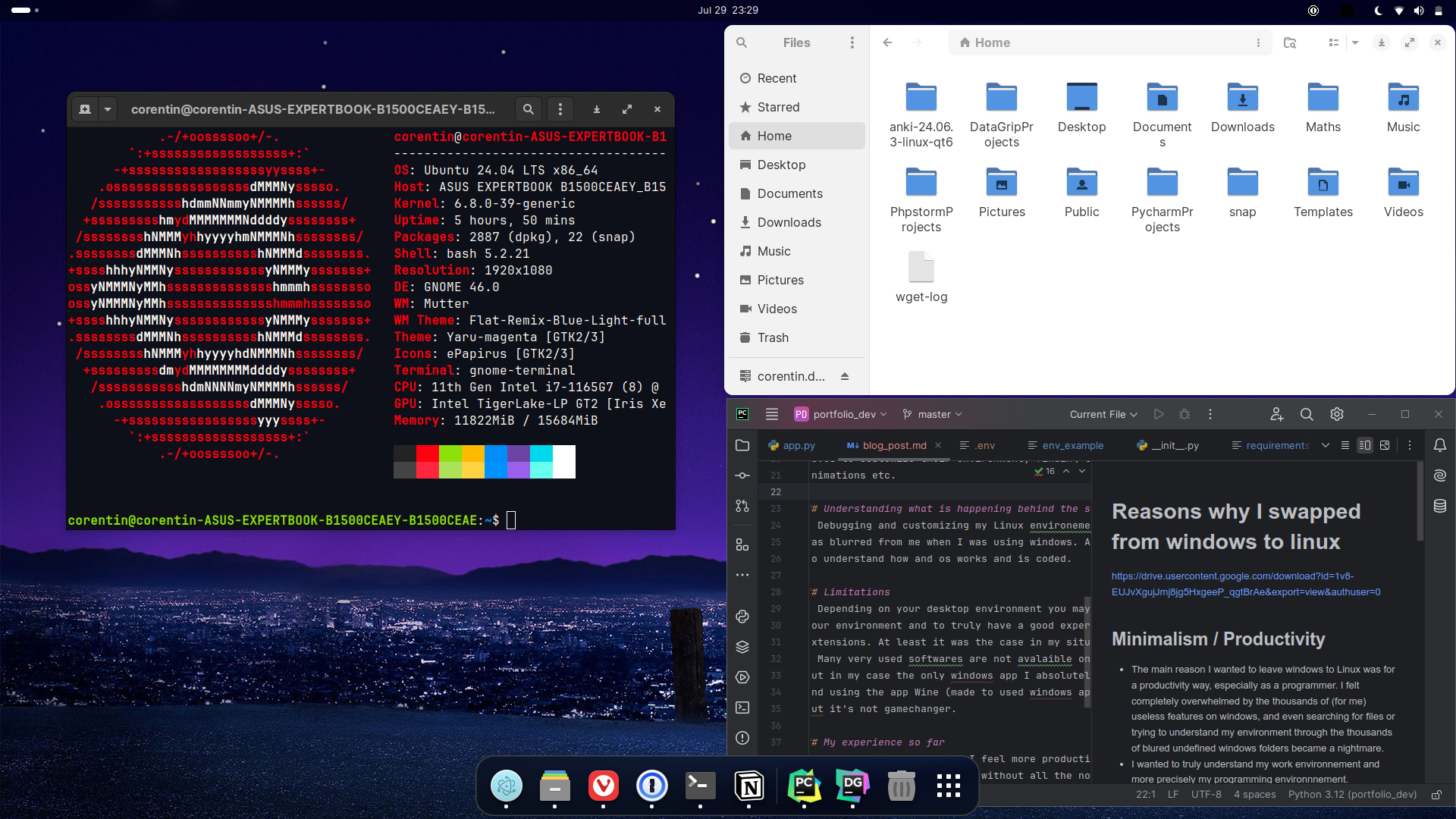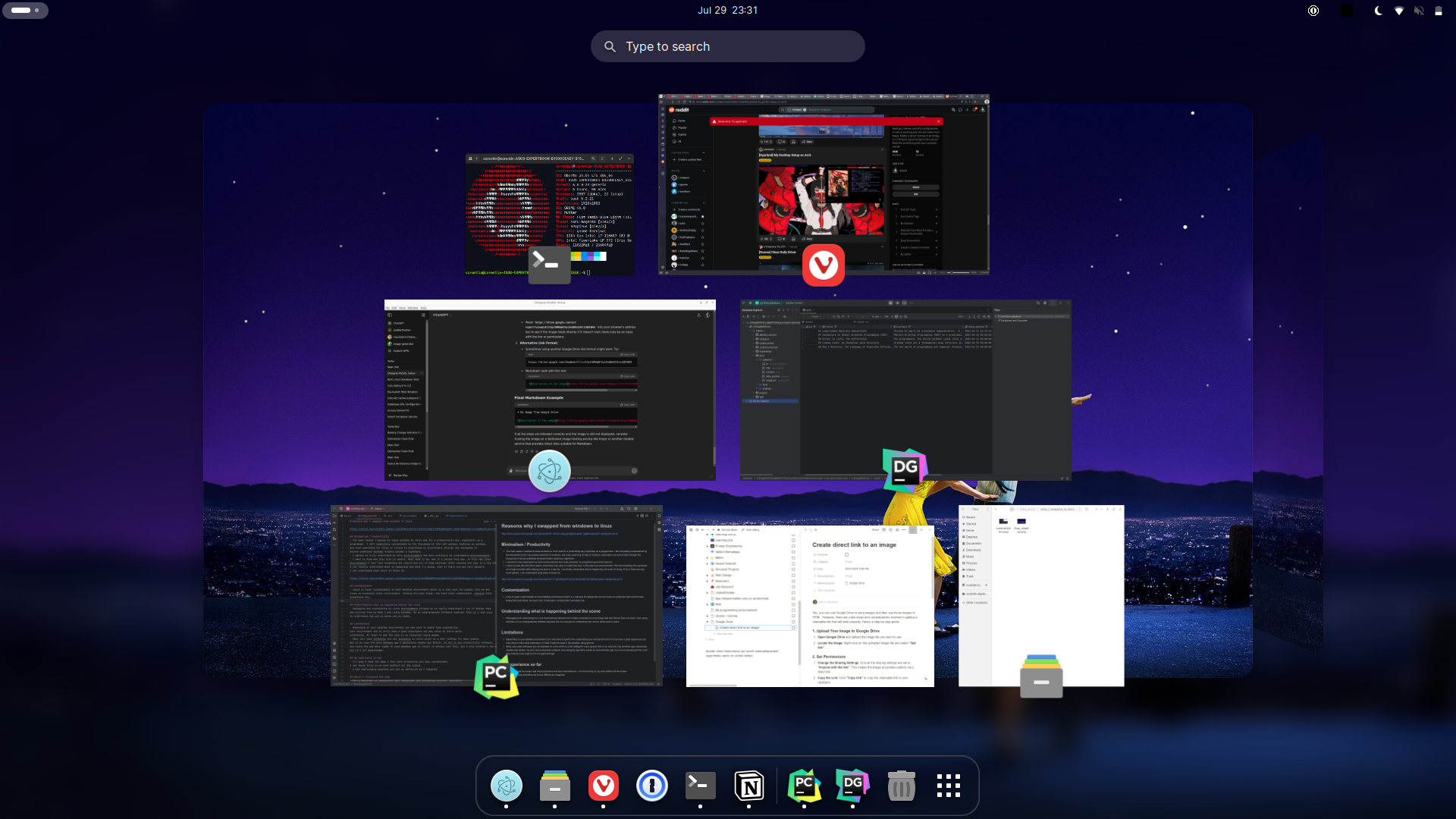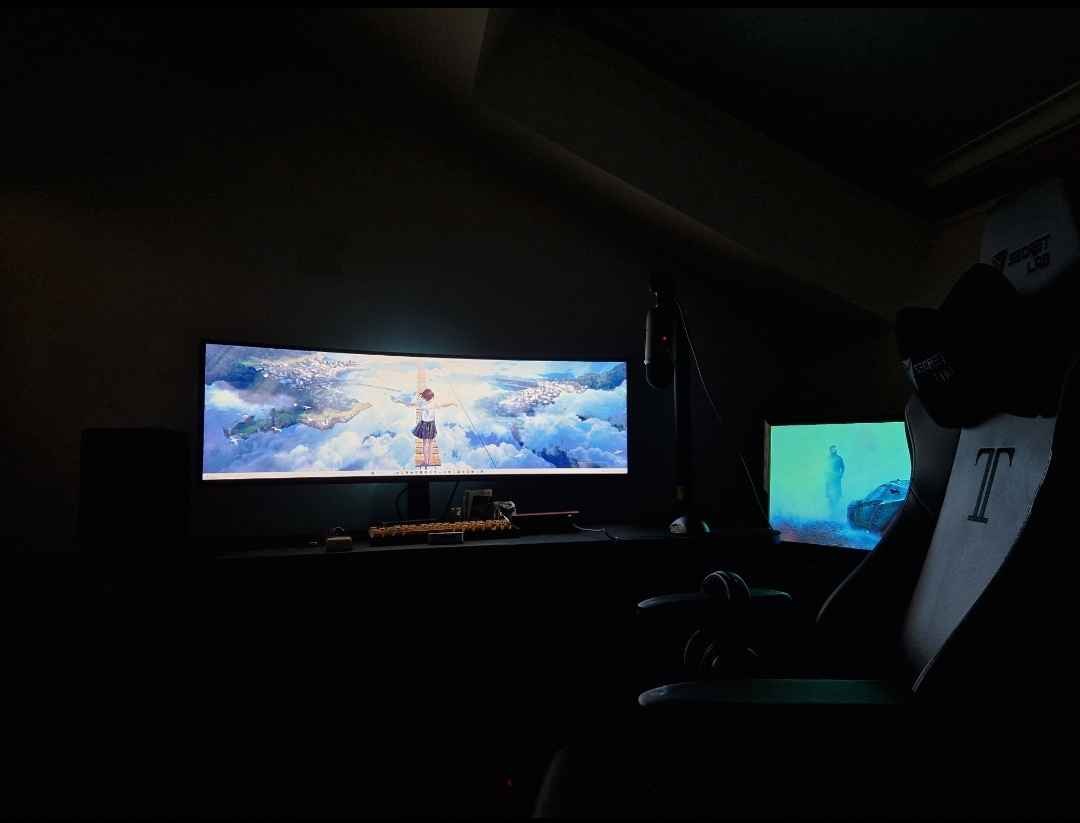Switching from Windows to Linux was a big change for me, especially as a programmer. It wasn’t just about trying something new; it was about finding a more productive, minimalistic, and understandable environment. Here’s why I made the switch, the benefits I've experienced, and the challenges I’ve faced.
Minimalism and Productivity

One of the main reasons I moved from Windows to Linux was to boost my productivity. As a programmer, I often felt overwhelmed by Windows' many (often useless) features. Just searching for files or navigating the endless, confusing folders felt like a nightmare.
With Linux, it’s like breathing fresh mountain air after a year in a crowded city. My work environment is clean and straightforward. Every file and function has a clear purpose, and I finally understand what’s happening and what I’m doing. There are less options in Linux, but I can grasp what each one does, which helps me stay focused and productive.
Customization

Linux is incredibly customizable, which is a dream come true for someone like me who loves personalizing their environment. On Linux, I can tweak my desktop to look and feel exactly how I want. I can choose the best themes, color combinations, and even animations to enhance my user experience.
This level of customization makes my workspace not only beautiful but also perfectly suited to my workflow. Windows just doesn’t offer this kind of flexibility, making Linux a better choice for those who value personalization.
Understanding What’s Happening Behind the Scenes

Linux has taught me a lot about how operating systems work. Debugging and tweaking my Linux setup has revealed many aspects of the OS that were hidden from me in Windows. As a software engineering student, this knowledge is incredibly valuable.
Linux lets me see what’s going on behind the scenes, giving me a clearer picture of how the system works. This insight is crucial for my development as a programmer and helps me troubleshoot and optimize my setup more effectively.
Limitations
But Linux isn’t perfect. Depending on your desktop environment, you might have to spend a lot of time customizing your setup to get a good user experience. For me, using GNOME meant relying on third-party extensions to make everything work smoothly.
Also, many popular software applications aren’t available on Linux. This can be a big drawback for some people. Personally, the only Windows app I absolutely needed was Notion, my go-to productivity software. Luckily, I could run Notion on Linux using Wine, an app that lets you use Windows programs on Linux. I did encounter a few bugs, but nothing that seriously impacted my work.
My Experience So Far
Overall, I’m really happy I made the switch to Linux. I feel more productive and less overwhelmed, with fewer distractions to get in the way of my work. While there have been some challenges, they weren’t as tough as I expected.
Would I Recommend the Swap?
For developers, open-source enthusiasts, and minimalism lovers, I’d definitely recommend switching to Linux. The boost in productivity, deeper understanding of the system, and ability to customize are huge benefits.
However, for everyday users who aren’t used to terminal commands and might be nervous about troubleshooting, the switch might be more trouble than it’s worth. In that case, a dual-boot setup with Windows might be a good compromise for those curious about Linux but not ready to fully commit.
In conclusion, switching from Windows to Linux has been a positive change for me. It’s made me more productive and given me a better understanding of my work environment. While it’s not for everyone, it’s definitely worth considering if you’re looking for a more streamlined, customizable, and transparent operating system.

